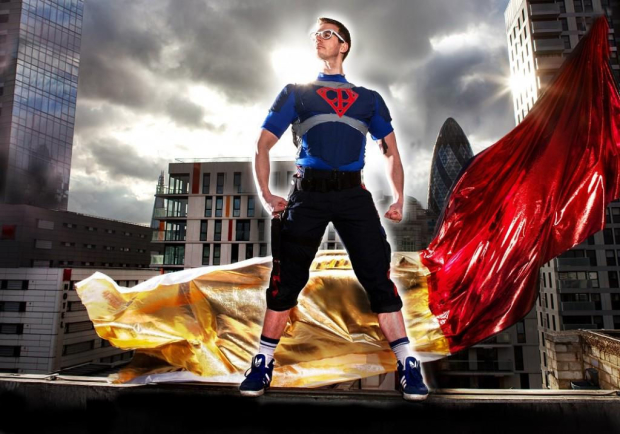Guest Blog: Staging superheroes at the Edinburgh Fringe
Joseph Mercier of PanicLab reveals the inspiration behind their new show

Since Superman first flew onto the pages of Action Comics (now DC) in 1938 our interest in superheroes has never really waned, and recent blockbuster film adaptations over the past decade has just renewed our fascination. At the end of Age of Ultron the credits appear over depictions of characters as Greek/Roman-esque marble statues. It's an apt comparison. Superheroes are our contemporary versions of the Greek/Roman gods and like those gods they've come to represent or embody certain cultural ideas and ideals.
Superman, for instance, was born out of the optimism of the American Dream, while Wonder Woman emerged out of a growing sense of women’s empowerment during and after World War II. Captain America served as a symbol of American patriotism during the war (in 1940, the issue with a cover depicting Captain America punching Hitler in the face sold over a million copies). The X-Men are often seen as an allegory for the outsider struggling for recognition, rights and liberties, echoing some of the struggles of the civil rights, gay rights and feminist movements of the 60s, 70s and 80s. They are our modern myths, exploring and magnifying our cultural ideals, values and struggles.
'I often find myself torn between the seductive fantasy of the superhero and a critical suspicion of it'
And while I love superheroes and their stories – and I'm totally obsessed! – I am often wary of letting myself get too lost in this mythology. Modern film adaptations especially tend to tell the most simplified version of this narrative, often erasing any sense of critical engagement with the genre or the potential social critique that these stories might offer. They allow the fantasy to take over, instead of questioning the idea of a hero and the politics of power that must surely come with some people having superpowers (and others not). In contrast to this, some comic book writers, such as Alan Moore and Grant Morrison, are keenly aware of the politics of the figure of the superhero and have used it as a springboard for some of the of the best superhero tales.
I often find myself torn between the seductive fantasy of the superhero and a critical suspicion of it. This was the place I, and PanicLab, the group of artists I work with, found ourselves in as we set out to make R.I.O.T. (our dance-theatre show about superheroes). We explored everything we love about the genre, but also the problems we have with it. We sought playful ways of questioning the mythology, while still maintaining our childlike joy in imagining ourselves as these modern gods.
Perhaps, most helpful – and most frustrating – was that we discovered that none of us, despite a high level of physical skill and training, was anything near super-powered Our next mission will be a run a three-week run at Zoo Venues at the Edinburgh Fringe Festival, something of a superhero feat itself and despite our masks and awesome lycra suits, our humanness cannot be disguised. We're just big kids playing out a fantasy of who we wish we could be. That's what we found most fascinating about the idea of the superhero: the mirror it holds up to remind us just how human we are.
R.I.O.T. is at Zoo Venues from 7 to 31 August (not 12, 19)













